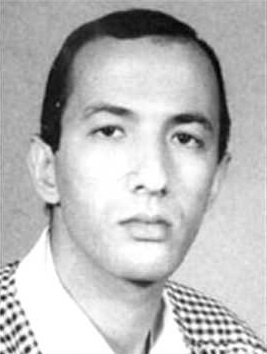[ by Charles Cameron — a miscellany of must read articles in must read times — with just a taste of each of them ]
.
Be at peace, take up your courage, fight the good fight, be at peace: happy Easter
**
George Monbiot, Covid-19 is nature’s wake-up call to complacent civilisation
I hope we never have to witness fights over food. But it’s becoming difficult to see how we will avoid them.
A large body of evidence is beginning to accumulate showing how climate breakdown is likely to affect our food supply. Already farming in some parts of the world is being hammered by drought, floods, fire and locusts (whose resurgence in the past few weeks appears to be the result of anomalous tropical cyclones).
Locusts?
While we’re worrying over COVID-19, Africa has its own natural calamity, threatening countless lives with death by starvation:
Newsweek, Locust Swarms as Big as Cities are causing a Crisis in Africa as experts warn they could get 400 times bigger
And in case that title is hard for you to read in red, here it is in black and white, in bold and in italics:
Locust Swarms as Big as Cities are causing a Crisis in Africa as experts warn they could get 400 times bigger
“The herders will have a real challenge of pasture, and this may also cause movement from one place to another in search of pasture, with inherent risk of communal conflict over pasture or grazing land or passing territories,” the UN Ambassador for Kenya, Lazarus O. Amayo, said in a statement.
Others will have no choice but to stay put.
“At least for livestock keepers in northern Kenya, south and eastern Ethiopia and north and central Somalia, they have an option of moving with their livestock to areas not affected by the locust swarms, but for smallholder agricultural farmers, they are left with no option but to consider their hard labor and food source gone,” said Emoru.
**
Locusts? Coronavirus? When what’s barreling down the tunnel of future high likelihoods is nothing less than an uninhabitable climate, uninhabitable planet?
David Wallace, The Coronavirus Is a Preview of Our Climate-Change Future
if the disease and our utter inability to respond to it terrifies you about our future staring down climate change, it should, not just as a “fire drill” for climate change generally but as a test run for all the diseases that will be unleashed in the decades ahead by warming. The virus is a terrifying harbinger of future pandemics that will be brought about if climate change continues to so deeply destabilize the natural world: scrambling ecosystems, collapsing habitats, rewiring wildlife, and rewriting the rules that have governed all life on this planet for all of human history
**
For the warfighter, all this means war:
Kahl & Berengaut, Aftershocks: The Coronavirus Pandemic and the New World Disorder
if we want to understand the even darker direction in which the world may be headed, leaders and policymakers ought to pay more attention to the two decades after the influenza pandemic swept the globe. This period, often referred to as the interwar years, was characterized by rising nationalism and xenophobia, the grinding halt of globalization in favor of beggar-thy-neighbor policies, and the collapse of the world economy in the Great Depression. Revolution, civil war, and political instability rocked important nations. The world’s reigning liberal hegemon — Great Britain — struggled and other democracies buckled while rising authoritarian states sought to aggressively reshape the international order in accordance with their interests and values. Arms races, imperial competition, and territorial aggression ensued, culminating in World War II — the greatest calamity in modern times.
And that war was a nuclear war, Hiroshima, Nagasaki remember all too well.. a coupld of small holocausts — burnt offerings, fire sacrifices — at 10,830 °F if you were close to ground zero..
**
For the United States, “Democracy may be dying”:
Paul Krugman, American Democracy May Be Dying
the scariest news of the past week didn’t involve either epidemiology or economics; it was the travesty of an election in Wisconsin, where the Supreme Court required that in-person voting proceed despite the health risks and the fact that many who requested absentee ballots never got them. ..
Authoritarian rule may be just around the corner.
**
And right now, in our hospital ERs and ICUs, the medical profession lices — an dies — as it saves lives..
Nicholas Kristof, Life and Death in the ‘Hot Zone’
Ms. Gifford recalled a patient who had come from an assisted-living center. “I’m really scared,” he told her. “I don’t want to have Covid. I’m in a facility and there are people dying there.”
I’ve chosen that snippet because it cuts so close to home (my own nursing facility) for me..
But more generally:
For health workers, intubation is nerve-racking because it causes the virus to spray out from the lungs into the air. In this case, the procedure was performed in a room on the edge of the hot zone with negative air pressure, so that the virus would remain in the room. A plastic box was placed over the patient’s head, and the nurse-anesthetist put her arms through holes in the box to perform the intubation.
And the doctors and nurses perform this nightmare procedure perhaps eight or more times in a day.. What an unimaginable, multiple proof of the strength of the Hippocratic Oath!! If you yearn for miracles, look no farther.
**
Be at peace, have courage, fight the good fight, be in peace, : have compassion..ight the good fight, be at peace: have compassion..




